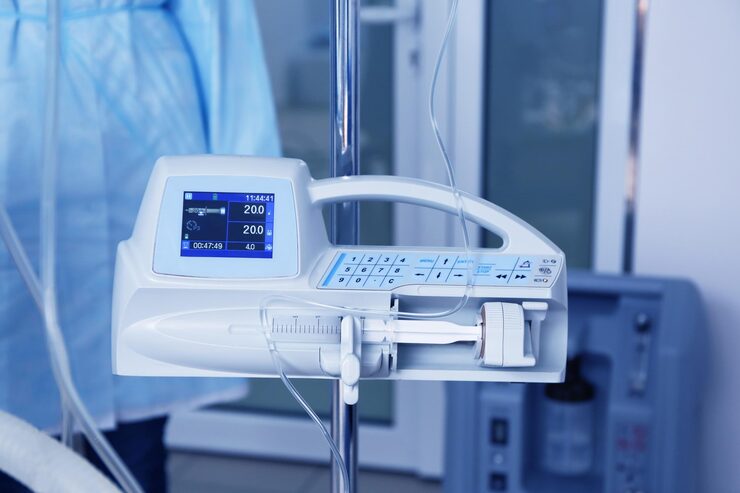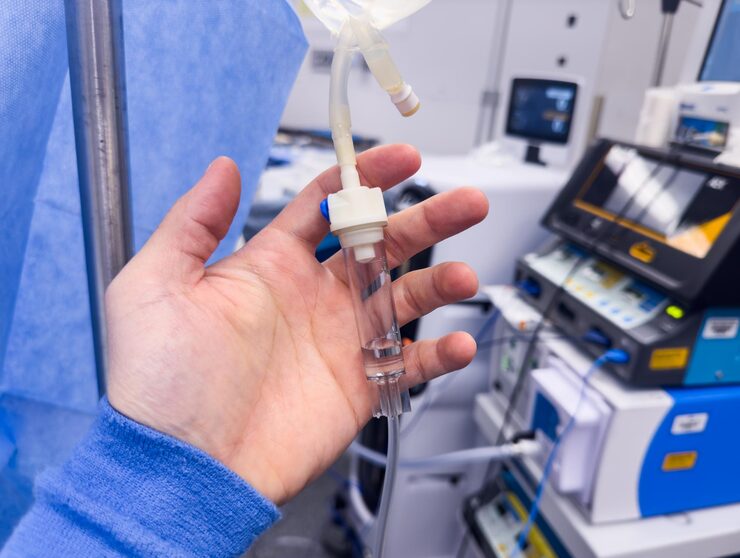
Intelligent Infusion Systems: Revolutionizing Patient Care
Intelligent infusion systems, are changing the healthcare landscape by improving IV fluid and medications safety and accuracy while on patients. Alongside the ever-evolving medical technology, these systems are now going into advanced automation, AI (artificial intelligence) and continuous monitoring in order to prescribe the correct treatment at the right time. Important role is carried out by the intelligent infusion systems in areas like critical care and surgery and other medicine areas where you have to administer fluid in an exact dose for treatment. Infusion System Introduction, Essentials of Infusion Systems, the advantages of intelligent infusion systems & its effect on future of healthcare in this blog.
Basic Infusion
Infusion is the process of giving fluids, medications or nutrients directly into the blood stream via an IV line. Common medical use for a lot of conditions ranging from dehydration to near life-threatening illness that needs medication. Common infusion systems are basically a manual healthcare professional controls the rate at which fluid is being delivered to the patient.
Traditional infusion systems rely on gravity or mechanical pumps, and healthcare providers monitor the infusion rate closely to ensure accuracy. However, manual systems are prone to human errors such as incorrect flow rates, contamination, and delayed adjustments, which can result in complications such as fluid overload, infection, or under-infusion.
To address these challenges, intelligent infusion systems have emerged, offering a more automated and efficient approach to fluid and medication administration.
Intelligent Infusion System
Intelligent infusion systems go beyond basic infusion methods by integrating advanced technologies such as AI, machine learning, and sensor-based feedback loops. These systems automatically regulate the flow of fluids based on real-time data collected from the patient’s health monitors, such as heart rate, blood pressure, and oxygen levels. This allows the system to adjust the flow rate dynamically and ensure that the right amount of medication or fluid is delivered at all times, significantly reducing the risk of human error.
Central to the value of intelligent infusion systems are the personalized treatments they can deliver. As the patient’s condition can change and intelligent infusion technology works to adjust for those changes, the system keeps the infusion rate at the optimal level throughout treatment course for that patient.
Additionally, intelligent infusion systems come equipped with safety features such as alarm systems for occlusions, air in the line, and other potential hazards, further enhancing patient safety.
Intelligent Implants Smart Fuse
Intelligent implants are recent medical device revolutionary combination of AI and implantable technologies. Implants which are carefully engineered to measure, and manage certain health conditions in the body a.k.a inject medication or a regulate a body function. Smart infusion systems support the integration of intelligent implants leading to a smarter and more disciplined delivery of treatment (particularly for patients who have chronic diseases which need continuous monitoring and medication delivery)
Smart fuses are a component that works similarly to intelligent implants by facilitating the connection between the body and external devices like infusion pumps. These devices ensure that the infusion system is functioning correctly by monitoring the flow of fluids and medications within the body. By using AI, they can predict any potential issues and make real-time adjustments to avoid complications.
The integration of intelligent implants and smart infusion systems has the potential to revolutionize treatments, offering patients a more efficient, personalized, and safer healthcare experience.
Automated Infusion Pump
An automated infusion pump is one of the key components of intelligent infusion systems. These pumps are designed to deliver fluids, medications, and nutrients to patients at precise rates and volumes without the need for manual intervention. Unlike traditional pumps that require healthcare professionals to monitor and adjust the infusion process, automated infusion pumps are self-regulating and often integrated with patient monitoring systems that collect data to inform the pump’s decisions.
Automated infusion pumps offer several advantages over traditional methods:
- Precision: Automated pumps adjust infusion rates based on real-time patient data, ensuring accurate delivery.
- Efficiency: These pumps can work independently, reducing the workload for healthcare providers.
- Safety: Automated pumps are equipped with alarms for occlusions, air in the line, and other issues, preventing potential complications.
- Patient-Centric: They provide personalized care by adjusting the infusion process based on individual patient needs, ensuring better treatment outcomes.
The automation of infusion pumps in intelligent infusion systems has greatly improved patient care by increasing the reliability and safety of fluid and medication administration.
Table: Comparison of Smart Infusion Systems vs. Serum Tracker’s AI-Powered Infusion Pumps
| Feature | Traditional Infusion Systems | Intelligent Infusion Systems | Serum Tracker’s AI-Powered Pumps |
| Automation | Manual adjustment or basic mechanical | Self-regulating with AI and sensors | Fully automated with AI and machine learning |
| Real-Time Monitoring | Limited or no real-time data | Continuous data monitoring from health devices | Continuous patient data collection and optimization |
| Safety Features | Basic alarms for occlusion and flow issues | Advanced alarms for air in line, occlusion, etc. | AI-driven safety features, advanced alerts for all risks |
| Customization | Fixed or preset flow rates | Dynamic flow rate adjustments based on patient condition | Continuous AI optimization for personalized care |
| Integration with Other Devices | Typically standalone | Integrated with health monitoring systems | Seamless integration with hospital systems and wearable devices |
| Precision | Prone to human error and inconsistencies | Enhanced precision through automation | Ultra-precise adjustments based on real-time data |
| Adaptability | Limited flexibility | High adaptability to changing patient needs | Adaptive AI that learns and evolves based on patient data |
Similarities Between Serum Tracker’s AI-Powered Pumps and Intelligent Infusion Systems
Serum Tracker’s infusion pumps are nothing new to market as they share some similarities with the rest of intelligent infusion systems. Automated infusion pumps/ Serum features technology that allows real-time data monitoring, accurate fluid titration and automated adjustments in the flow rate of the fluids dependent on the patient’s status like other automated infusion pumps Serum Tracker. Serum Tracker pumps are the next step in this space by using AI and machine-learning to dynamically optimize fluid delivery as patient data evolves. It guarantees our smart IV pumps are not only precise and safe but agile/scale-able to fluid delivery.
Conclusion
Intelligent infusion systems represent the future of patient care, combining automation, real-time monitoring, and AI-driven decision-making to enhance the safety and precision of intravenous therapy. From basic infusion methods to automated pumps and intelligent implants, these technologies are changing the way healthcare professionals deliver treatment.
The infusion pumps of Serum Tracker — an AI-Intelligent infusion systems are the beneficiary of the evolution in intelligent infusion systems. Using AI algorithms to deliver the most accurate fluid management every time, our smart IV pumps learn from patient data in real-time to safely deliver treatment seamlessly. Serum Tracker combines cutting edge AI and automation in an effort to improve the delivery of patient care, revolutionize infusion.

